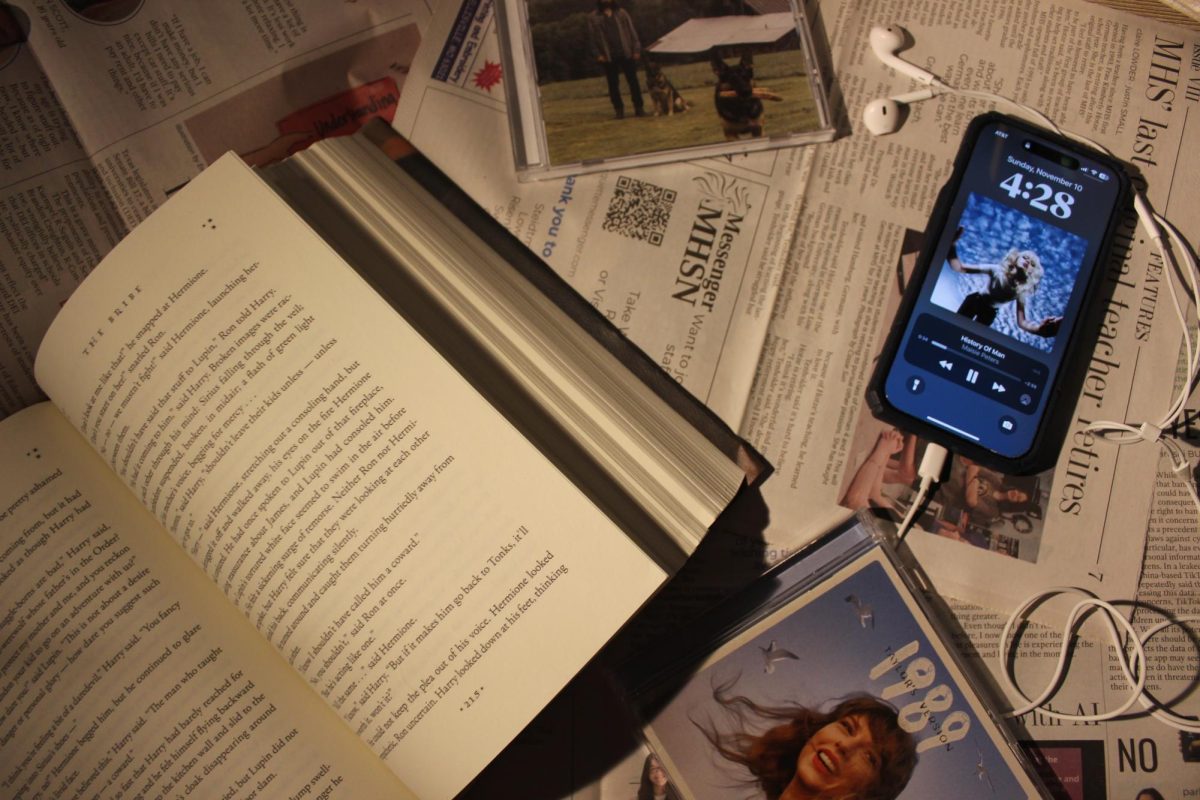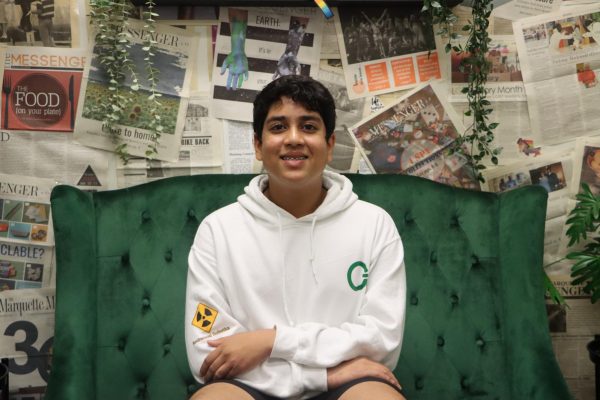When Molly Fitzpatrick, sophomore, started reading Homer’s “Odyssey” in Language Arts, she was surprised to find out that her favorite album, “The Good Witch” by Maisie Peters, contains many references to the classic book.
“I would read a little paragraph and be like ‘there are at least three lines in here that Masie Peters has used,” Fitzpatrick said.
Fitzpatrick said she listens to, on average, more than 2,000 minutes of music a week. This music has been beneficial to her in many ways, including in academics.
“I will learn so many different words from music and T.V. shows,” Fitzpatrick said. “Taylor Swift especially, she often uses words that I don’t know.”
Lyrics from Swift’s songs such as “In from the snow / Your touch brought forth an incandescent glow / Tarnished but so grand” from Swift’s song “ivy” have helped Fitzpatrick in the past.
“We had ‘incandescent’ the other day and I was like ‘I know what that means,’” Fitzpatrick said.
Fitzpatrick’s ability to critically analyze, evaluate and learn from media is called media literacy. According to Media Literacy Now, Media literacy is the ability to navigate and to gain tools and skills which can help in the consumption of information of our ever changing media landscape.
However, media literacy isn’t just important in music; it can be used in things like voting, as well.
Lillian Jean-Baptiste, senior, voted in the election on Tuesday, Nov. 5. Jean-Baptiste used online media, such as news outlets, to make her final decisions in voting.
“I usually do research on a lot of different news channels and see what different people are saying about different amendments and propositions and everything,” Jean-Baptiste said.
Jean-Baptiste said that doing this research is important, especially in an election.
“The way that you interpret the simple media around you is going to impact how you’re voting in each election,” Jean-Baptiste said. “Teaching people to critique media and that not everything is surface level is really important.”
Lauren Williams, language arts teacher, said she shows research methods to her ALAR/P students every year so they can have balanced perspectives in their end-of-year capstone projects. The methods used in this research are very similar to methods used to maintain media literacy.
Williams said media literacy is also important in the news you take in. An example of this is with hurricane Milton, in which lots of people and media outlets posted articles and pictures that heavily dramatized the true extent of the hurricane.
“People are being upset about things that aren’t happening,” Williams said. “People are using emotional energy and their time on things that just aren’t accurate.”
Williams said people can improve their media literacy by not reading all of their news from social media because algorithms will only feed people things they want to hear about.
Williams also said that reading newspapers which are known to be neutral, having lots of perspectives in the news you read and knowing the perspective the article is coming from can be helpful.
Shritha Nidamanuri, sophomore, said media literacy is important for all students.
“It helps us gather an opinion on what we feel needs to change in our country and what we should be advocating,” Nidamanuri said.
Nidamanuri said that with social media, there is a heightened responsibility to be media literate.
“It’s important to know what’s a fact and what’s a lie,” Nidamanuri said. “Some people blindly believe what they see, or they’re not well versed in how to know what’s real, what’s not.”
Nidamanuri said she tries not to believe everything she sees and always takes precautions when there is something that she wants to look into.
“I’ll look at what sources they are coming from. If it’s coming from a random website, I’m not going to believe it,” Nidamanuri said.




